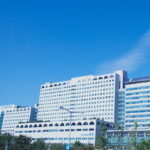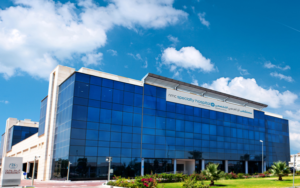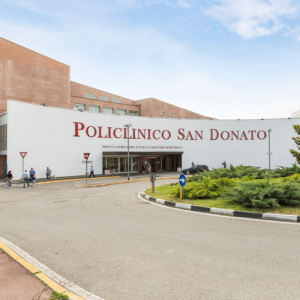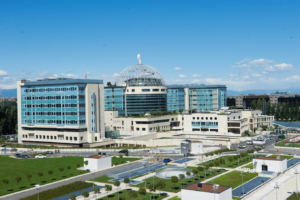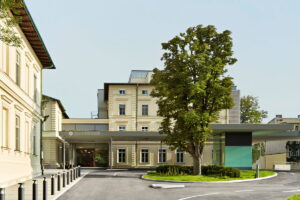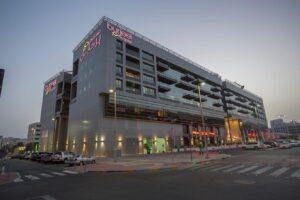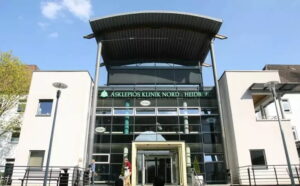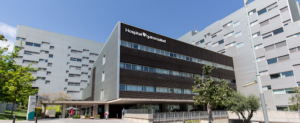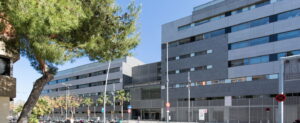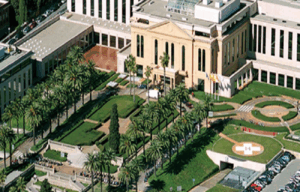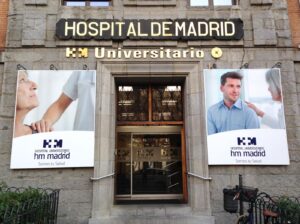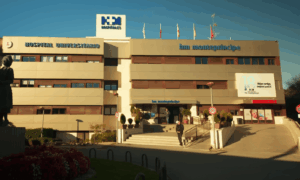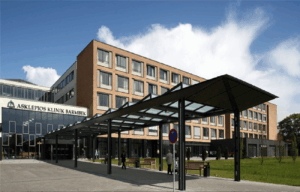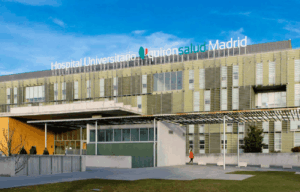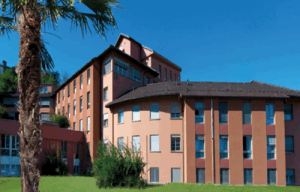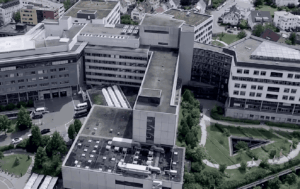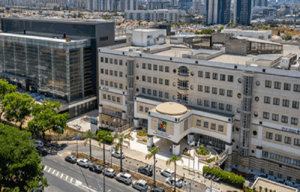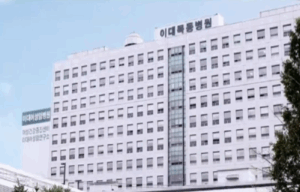Pediatrics
ПPediatrics is a branch of medicine that studies the mechanisms of development, diagnosis, treatment methods, and prevention of childhood diseases. Today, pediatrics covers all aspects of children’s lives and development in terms of health.
The main reason pediatrics is separated from other fields is that a child cannot be viewed as a small adult. Children have different physiology, clinical manifestations of diseases, and constant lability (variability) at all stages of growth.
Main stages of child development:
- Neonatal (first 28 days after birth)
- Infancy (up to one year)
- Early childhood (1-3 years)
- Lower preschool age (3-5 years)
- Upper preschool age (5-7 years)
- School age (7-11 years)
- Early adolescence (11-14 years)
- Late adolescence (14-18 years)
Each stage requires a specific approach to treatment and prevention that corresponds to the child’s constitutional characteristics.
Children under 18 are treated by a pediatrician. The pediatrician does not treat all illnesses but identifies problems, performs diagnostics, and refers the patient to a specialized doctor for further diagnosis and treatment.
When should parents seek pediatric care?
Any illness in a child becomes a source of concern for parents.
For infants who are not yet able to speak, it is necessary to consult a pediatrician in the following cases:
- High fever, seizures associated with fever
- Constant crying (especially at night)
- Excessive sweating during sleep
- Lethargy and drowsiness
- Nasal discharge (of any color, odor, or consistency)
- Redness, purulence, and tearing of the eyes
- Cough
- Diarrhea or constipation
- Vomiting
- Crying during urination (sometimes escalating into screaming)
- Rash on any area of the body
For children who are already able to describe what and where it hurts, a doctor should be consulted if the following symptoms are present:
- Difficulty breathing, nasal congestion, rhinorrhea (nasal discharge)
- Fever above 38°C, muscle pain, heaviness
- Chest pain, cough, shortness of breath
- Abdominal pain, loose stools, constipation
- Burning and pain during urination, lower back pain
- Discomfort after eating, nausea, vomiting
- Appearance of various rashes
What treatment areas are popular in global pediatrics?
The therapy of childhood diseases is one of the most extensive fields of medicine. There are many treatment areas for children, the most in-demand of which are:
- Oncology
- Neurology (cerebral palsy, epilepsy)
- Cardiac surgery (congenital heart defects)
For the treatment of pediatric oncology in leading global clinics, the following are used:
Chemotherapy — the use of toxic substances to destroy cancer cells. In the modern world, new drugs are constantly being developed to increase the effectiveness of treatment and reduce side effects.
Radiation therapy — a key component of tumor treatment using high doses of radioactive radiation. Advanced radiation therapy equipment can deliver targeted exposure (directly to cancer cells), sparing healthy tissues.
Targeted therapy — an innovative method of fighting childhood cancer in which drugs selectively destroy tumor cells by acting on specific surface “targets.”
Immunotherapy — the newest method of treating pediatric oncological diseases, where cancer cells are not destroyed directly, but the child’s own immune system is activated to fight them. This therapy involves monoclonal antibodies, cell therapy, immune checkpoint inhibitors, cytokines, and NK lymphocytes.
Da Vinci robot — a robotic system for minimally invasive surgical tumor removal. The precision of treatment is significantly higher than that of manual operations (especially for hard-to-reach tumors). European centers operate on the latest-generation systems — da Vinci Xi.
For the treatment of heart defects and other cardiological diseases in global clinics, the following are used:
Drug therapy — the primary treatment, which includes medications necessary to support heart function (antiarrhythmics, glycosides, cardioprotectors).
Surgical treatment — correction of defects through surgical intervention. Leading surgeons at top clinics use minimally invasive techniques (the catheter is inserted into the heart through blood vessels), which minimize the risk of complications and speed up the recovery period.
When neurological disorders are identified, the following are used in global clinics:
Laser therapy — reduces inflammation, enhances regeneration, and improves nourishment of damaged tissues.
BFB therapy (biofeedback) — a method of adjusting brain function without medication. It has gained particular recognition for its high effectiveness in treating children.Locomat and exoskeleton — rehabilitation using specialized robotic systems to restore walking skills. The devices train or reform the gait and allow significant results to be achieved in a short period of time.
Where to seek qualified pediatric care?
| Pediatric oncology | Heart defects | Neurological disorders | Vaccination | |
|---|---|---|---|---|
| Leaders in the field of pediatrics: | Germany Israel Spain South Korea Switzerland | Switzerland France Germany Israel Turkey | Israel China Spain Germany Austria | USA Italy China Germany France |
Procedures
- CAR-T therapy
- Heart valve replacement/repair: MitraClip and TriClip
- Bone marrow transplantation
- Immunotherapy
- Virotherapy
- CyberKnife
- Radiation therapy
- Chemotherapy
- Targeted therapy
- Vaccination against whooping cough, tetanus, and diphtheria: Boostrix
- Vaccination against measles, rubella, and mumps: Priorix, MMR VAX Pro
- HPV vaccination: Gardasil, Gardasil-9
- Photobiomodulation (PBM)
- Corneal transplantation
- Skeletal scintigraphy
- Cerebral palsy rehabilitation for children
Artificial intelligence in pediatrics
Artificial intelligence is being actively integrated into medicine, and pediatrics is no exception. AI has begun diagnosing diseases at the level of pediatricians: the program identifies illnesses with over 90% accuracy.
Like a pediatric specialist, artificial intelligence is capable of analyzing and integrating all types of medical data — from patient complaints and medical histories to test results and imaging — to establish a diagnosis.
HHospitality Medservice is your trusted partner in finding the best clinic worldwide. Our website features only authoritative medical institutions equipped with modern facilities and the latest treatment protocols. Compare clinic ratings and treatment costs, learn about the specialists and contact us for assistance in:
- arranging medical trips
- scheduling in-person consultations
- organizing video consultations
- obtaining a “second opinion”
Submit a request on our website, and one of our medical coordinators will contact you promptly.
Top clinics
-
 Seoul, South Korea Asan Medical Center
Seoul, South Korea Asan Medical Center -
 Dubai, UAE NMC Healthcare
Dubai, UAE NMC Healthcare -
 Milan, Italy San Donato Hospital in Milan, Italy
Milan, Italy San Donato Hospital in Milan, Italy -
 Milan, Italy San Raffaele University Hospital
Milan, Italy San Raffaele University Hospital -
 Graz, Austria Leech Private Hospital
Graz, Austria Leech Private Hospital -
 Abu Dhabi, UAE Burjeel Hospital Abu Dhabi
Abu Dhabi, UAE Burjeel Hospital Abu Dhabi -
 Vienna, Austria Debling Private Clinic
Vienna, Austria Debling Private Clinic -
 Heidelberg, Germany Heidelberg University Hospital
Heidelberg, Germany Heidelberg University Hospital -
 Hamburg, Germany Asklepios Nord Heidberg
Hamburg, Germany Asklepios Nord Heidberg -
 Dusseldorf, Germany FKKD Clinical Complex
Dusseldorf, Germany FKKD Clinical Complex -
 Incheon, South Korea Gil Medical Center at Gachon University
Incheon, South Korea Gil Medical Center at Gachon University -
 Barcelona, Spain QuironSalud Barcelona Hospital
Barcelona, Spain QuironSalud Barcelona Hospital -
 Barcelona, Spain Dexeus University Hospital
Barcelona, Spain Dexeus University Hospital -
 Barcelona, Spain Medical Center "Teknon"
Barcelona, Spain Medical Center "Teknon" -
 Barcelona, Spain Sant Joan de Deu Children's Hospital
Barcelona, Spain Sant Joan de Deu Children's Hospital -
 Barcelona, Spain University Hospital Barnaclinic+
Barcelona, Spain University Hospital Barnaclinic+ -
 Madrid, Spain University Clinic HM Madrid
Madrid, Spain University Clinic HM Madrid -
 Madrid, Spain University Hospital HM Monteprincipe
Madrid, Spain University Hospital HM Monteprincipe -
 Hamburg, Germany Asklepios Klinik Barmbek
Hamburg, Germany Asklepios Klinik Barmbek -
 Madrid, Spain Quiron Salud University Hospital
Madrid, Spain Quiron Salud University Hospital -
 Lugano, Switzerland Saint Anna Clinic
Lugano, Switzerland Saint Anna Clinic -
 Geneva, Switzerland Clinique des Grangettes
Geneva, Switzerland Clinique des Grangettes -
 Duesseldorf, Germany Oncological Center Dusseldorf
Duesseldorf, Germany Oncological Center Dusseldorf -
 Petah Tikva, Israel Schneider Children's Medical Center
Petah Tikva, Israel Schneider Children's Medical Center -
 Seoul, South Korea Samsung Medical Center
Seoul, South Korea Samsung Medical Center -
 Seoul, South Korea Medical Center at Ewha Womans University
Seoul, South Korea Medical Center at Ewha Womans University -
 Seoul, South Korea SNUH
Seoul, South Korea SNUH
